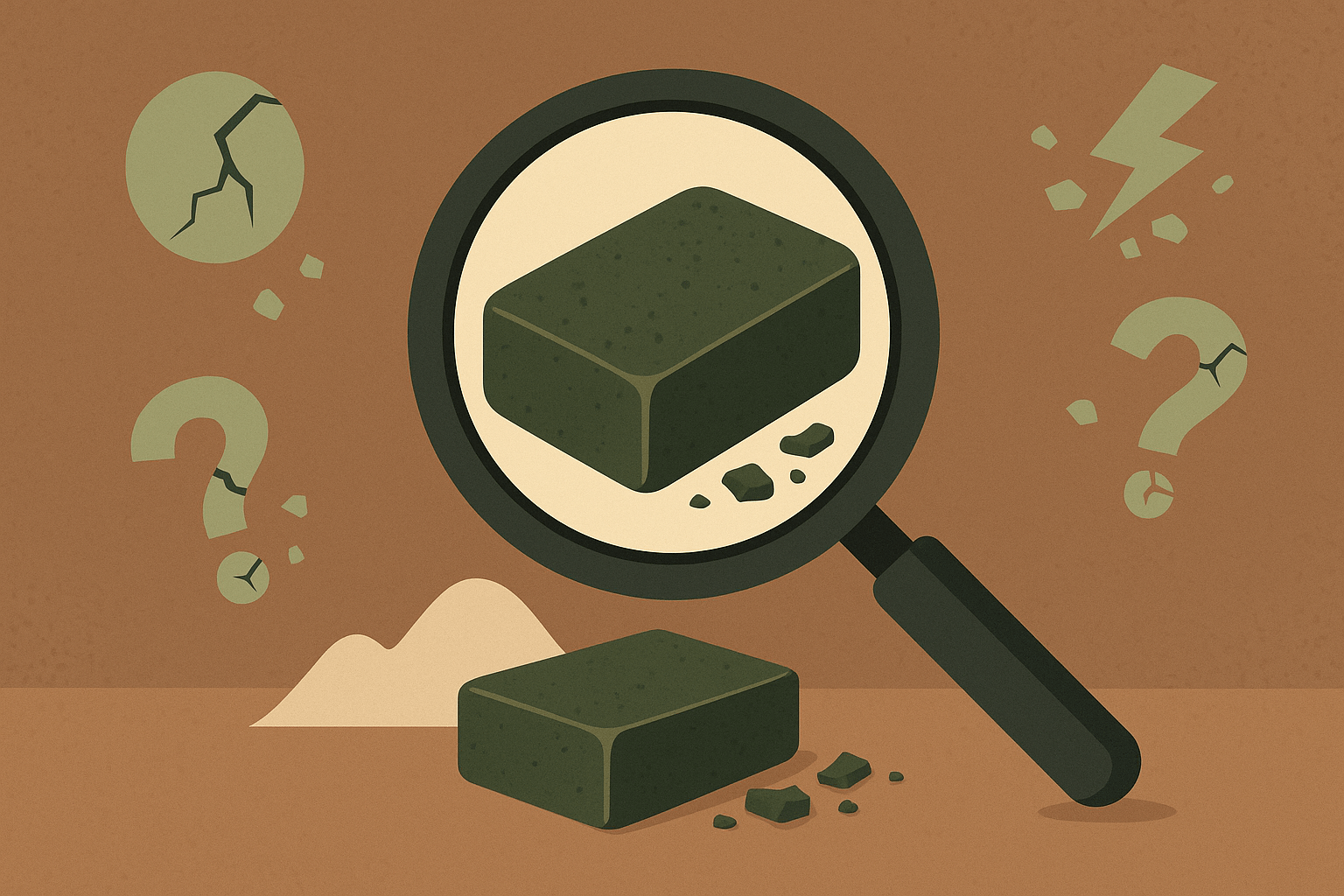
5 CBD Hash Myths Busted
CBD hash is gaining popularity, yet the market is riddled with misconceptions. From confusion with traditional cannabis to over-hyped marketing claims, separating fact from fiction can be tricky. This article unpacks five persistent myths so you can make informed, responsible, and fully legal choices in Switzerland 1.
Note: The following information is general and does not constitute medical advice. For therapeutic use, consult a qualified healthcare professional.
1. “CBD hash is illegal in Switzerland”
Fact: CBD products—including hash—are legal in Switzerland as long as they contain less than 1 % THC. Above that threshold, they are classified as prohibited narcotics 1.
Key takeaways:
- Always demand a Certificate of Analysis (COA).
- Products without lab documentation may be non-compliant and expose you to legal risk.
2. “CBD hash produces the same psychoactive effects as regular cannabis”
Fact: CBD (cannabidiol) is non-psychoactive; it does not cause euphoria or altered perception the way THC does. Users typically describe a mild sense of relaxation, without a “high” 2.
3. “The higher the CBD percentage, the better”
Fact: A higher CBD concentration is not automatically superior. Other compounds—terpenes and minor cannabinoids—work together in what researchers call the entourage effect 3. A hash rich in CBD but poor in terpenes may be less satisfying than a well-balanced product.
4. “CBD hash is completely THC-free”
Fact: Products under the Swiss legal limit of 1 % THC still contain trace amounts. At high doses or for very sensitive individuals, those traces can register on drug tests 4.
5. “All CBD hash is the same”
Fact: Quality varies dramatically: extraction method, hemp cultivar, solvent purge, and storage all influence purity, taste, and potency. Poorly processed hash can contain residual solvents or heavy metals.
How to spot quality CBD hash
- Texture: consistent, neither powder-dry nor overly sticky.
- Aroma: clean, terpene-rich, never chemical.
- Colour: uniform brown-gold to brown-green, no burnt black flecks.
- Lab tests: third-party results covering cannabinoid profile, residual solvents, and heavy metals.
Conclusion: informed consumption is safe consumption
Knowing Swiss law, understanding CBD’s real effects, valuing a complete terpene profile, and checking quality criteria empower you to choose CBD hash that is both safe and effective. With these five myths dispelled, you can navigate the Swiss market confidently.
Footnotes
-
Government of Switzerland (ch.ch). “Cannabis – What is the law in Switzerland?” (accessed 20 May 2025). https://www.ch.ch/en/health/medicines-and-narcotic-substances/cannabis/ ↩ ↩2
-
World Health Organization (WHO). “Cannabidiol (compound of cannabis) – Q&A.” 2017. https://www.who.int/news-room/questions-and-answers/item/cannabidiol-%28compound-of-cannabis%29 ↩
-
Russo E.B. “Taming THC: potential cannabis synergy and phytocannabinoid–terpenoid entourage effects.” British Journal of Pharmacology 163 (7): 1344-1364, 2011. https://bpspubs.onlinelibrary.wiley.com/doi/10.1111/j.1476-5381.2011.01238.x ↩
-
Verywell Health. “Using CBD? Here’s How It Could Affect Your Drug Test.” 2018. https://www.verywellhealth.com/cbd-oil-and-failing-drug-tests-4580277 ↩